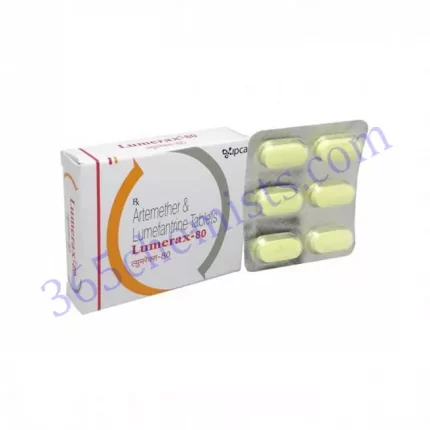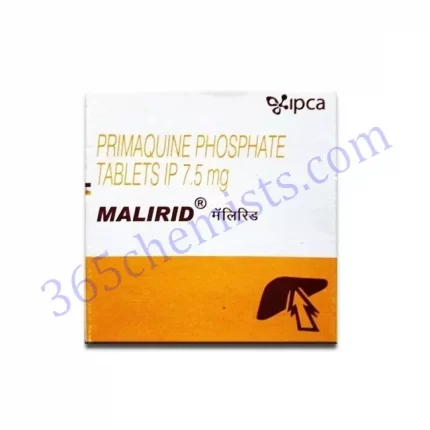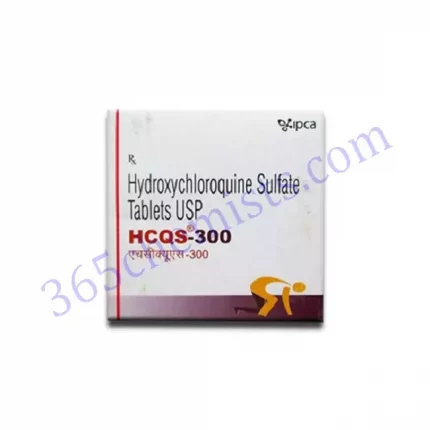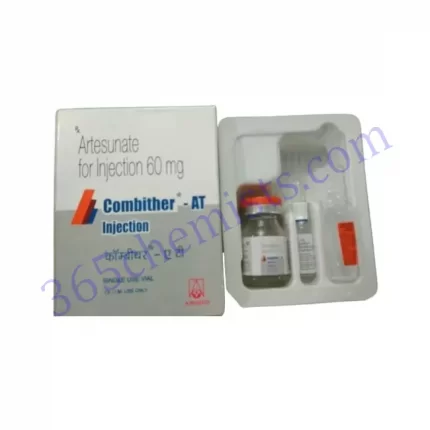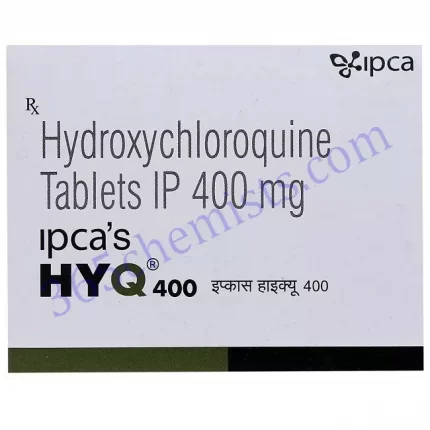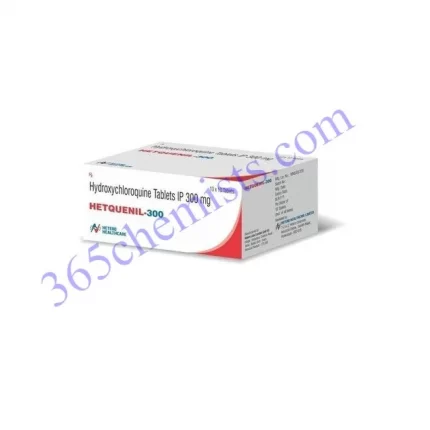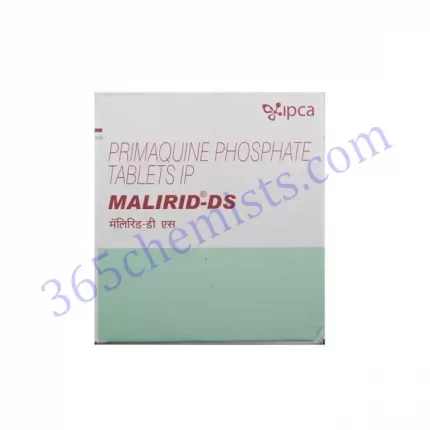Malirid 2.5mg Tablet: Effective Treatment for Malaria
2.5 mg of malirid Tablet contains the medication Primaquine 2.5mg, which is the active ingredient and is frequently used to treat malaria. It is specifically prescribed for the radical treatment of malaria infections caused by Plasmodium vivax and Plasmodium ovale. Malirid 2.5mg Tablet is essential in getting rid of the dormant liver-stage parasites and avoiding relapses, which guarantees full recovery from these kinds of malaria.
Understanding Malaria:
A potentially fatal condition called malaria is brought on by parasites of the Plasmodium genus. It is spread by the bite of Anopheles mosquitoes that are infected. Malaria continues to be a major global health concern, especially in areas where the illness is endemic. High fever, chills, headache, muscle aches, and fatigue are a few of the signs of malaria. In order to avoid complications and potential fatalities, prompt and appropriate treatment is crucial.
Primaquine: Mechanism of Action and Efficacy:
Malirid 2.5mg Tablet’s active component, primaquine, is an antimalarial drug that functions by concentrating on parasites in the dormant liver-stage. By interfering with the metabolic functions of the liver cells, it stops the parasites from proliferating and leading to relapses. Primaquine successfully eradicates the Plasmodium parasites in their hypnozoite stage, resulting in a complete recovery and preventing malaria recurrence.
Radical Cure for Plasmodium vivax and Plasmodium ovale:
Two malaria parasite species, Plasmodium vivax and Plasmodium ovale, have a dormant liver stage (hypnozoite) in addition to the blood stage infection. Even after the initial symptoms have subsided, the hypnozoites can persist dormant in the liver for weeks to months, leading to relapses. The only drug that can completely eradicate hypnozoites, offer a radical cure, and prevent relapses is primaquine, which can be found in Malirid 2.5mg Tablet.
Dosage and Administration:
Medical professionals base the Malirid 2.5mg Tablet dosage on the patient’s age, weight, and type of malaria infection, among other things. To ensure the complete eradication of the parasites, it is imperative to adhere to the recommended regimen and finish the entire course of treatment. The timing of doses and whether Malirid 2.5mg Tablet should be taken with food may also be addressed by healthcare providers.
Related Product
Malirid 2.5 mg Tablet
Malirid 7.5 mg Tablet
Malirid DS 15 mg Tablet
Safety Profile and Side Effects:
2.5 mg of malirid When taken as prescribed, tablets are typically well tolerated. However, it could have side effects, just like any medication. Abdominal discomfort, nausea, vomiting, headaches, and dizziness are examples of common side effects. These negative effects are typically minor and short-lived. Although serious adverse reactions are uncommon, they should be reported right away to healthcare professionals.
Precautions and Contraindications:
The 2.5mg Malirid Tablet may not be appropriate for everyone. Before taking the medication, people with certain medical conditions, such as glucose-6-phosphate dehydrogenase (G6PD) deficiency, should use caution or speak with their doctor. Hemolysis (the breakdown of red blood cells) in response to primaquine can be more likely in people with G6PD deficiencies. Any pre-existing conditions, current medications, or allergies must be disclosed to healthcare providers in order for them to be properly assessed and advised.
Prevention of Malaria Relapse
Malirid 2.5mg Tablet’s active ingredient, primaquine, is crucial in preventing malaria attacks brought on by Plasmodium vivax and Plasmodium ovale. Primaquine eliminates the hypnozoites by going after the dormant liver-stage parasites and significantly lowers the risk of relapses.
Importance of Radical Cure:
Malirid 2.5mg Tablet’s radical treatment is essential for completely eliminating malaria from the body. The acute blood-stage infection is successfully treated with other antimalarial drugs, but the dormant hypnozoites cannot be removed. Without a radical cure, the parasites that have lain dormant can reactivate, leading to relapses and lengthening the course of the illness.
Guidelines for Primaquine Use:
When administering primaquine, consideration must be given to the patient’s age, weight, medical history, and status of the G6PD enzyme. Primaquine-induced hemolysis may be more likely in people with G6PD deficiency, an inherited disorder that affects red blood cell function. Therefore, G6PD testing should be done on people before they start Malirid 2.5mg Tablet treatment.
Monitoring and Follow-up:
Healthcare professionals may keep an eye on patients as they receive Primaquine treatment for any side effects, especially if they have G6PD deficiency. Regular follow-up visits enable close monitoring and assessment of treatment efficacy. Any new symptoms or unfavourable reactions should be immediately reported by patients to their healthcare providers for proper management.
Prevention Strategies:
People should continue to practise preventive measures in addition to the radical treatment with Primaquine to lower the risk of developing new malaria infections. Insecticide-treated bed nets, protective clothing, insect repellents, and early diagnosis and treatment of fever or suspected malaria cases are some examples of this. Effective malaria control is facilitated by these preventive measures as well as the radical treatment method provided by Malirid 2.5mg Tablet.
Conclusion:
A useful drug for the radical treatment of malaria infections caused by Plasmodium vivax and Plasmodium ovale is Malirid 2.5mg Tablet (Primaquine 2.5mg). It effectively prevents relapses and ensures full recovery from these kinds of malaria by focusing on the dormant liver-stage parasites. People can take advantage of Malirid 2.5mg Tablet’s radical curative properties and help to control and eradicate malaria by taking the recommended dosage, the entire course of treatment, and the necessary precautions. We can work towards a world without malaria by advancing ongoing research, efficient public health initiatives, and international cooperation. This will improve everyone’s health and well-being.



